How To Start a Startup: 5 Tips from Gustaf Alströmer, YC
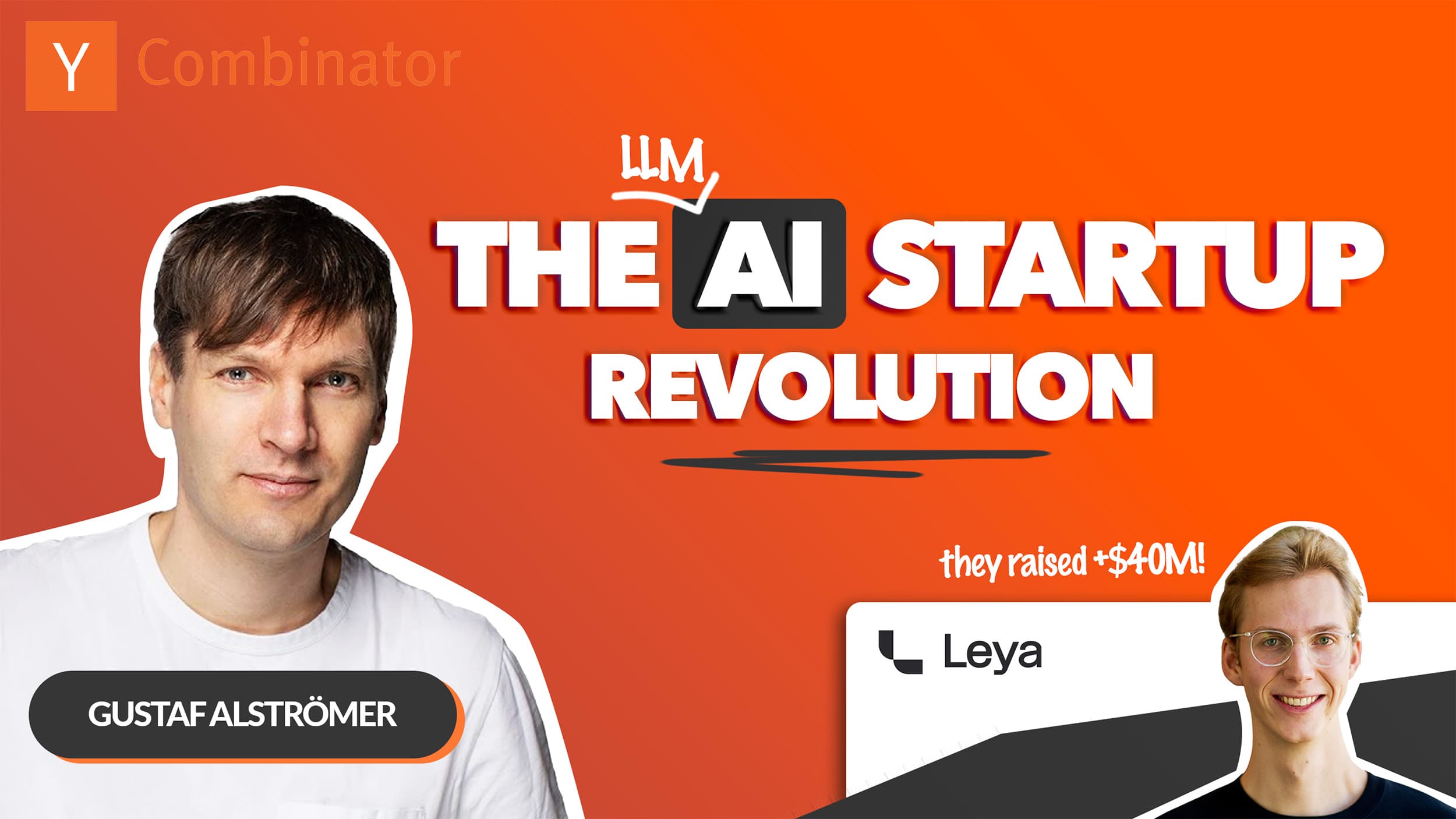
Contents
Introduction
Are LLMs and AI the new startup revolution? Gustaf Alströmer, Partner at Y Combinator thinks so. He shares his 5 tips on how to start a startup, ideas on the future of startups and how to get product-market fit, as YC visits Stockholm, Sweden.
Together with Max Junestrand, founder and CEO of AI scaleup Leya who raised + $40M. Read the summary with 8 learnings from their growth journey here.
This post summarizes Gustaf's exclusive talk. With my added thoughts and reflections - as a startup founder of a B2B SaaS since 5 years back. Let's get into things!
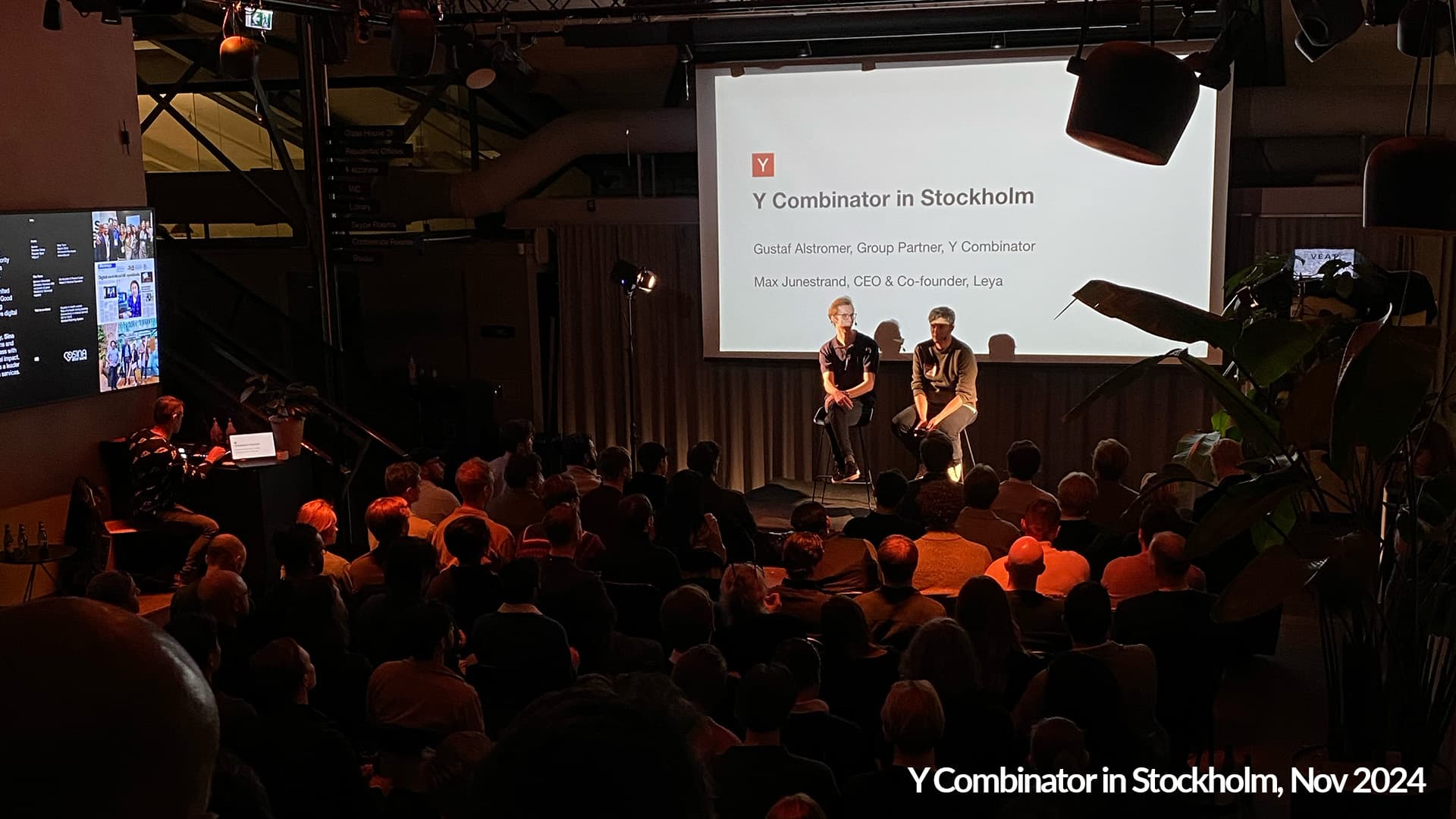
How to Start a Startup (5 Tips)
Startups in early days are fragile. In the start, they are by default not working.
So you have to work very hard and make the right decisions. At least you need to make more good decision than bad ones.
Here are 5 tips on how to start a startup - by Gustaf Alströmer @ Y Combinator.
1. Build a great team
Many YC companies pivot. The idea changes but the team stays the same. Thus, the team is what makes or breaks it.
Gustaf Alströmer shares some examples of successful pivots from YC:
Startup | When applying to YC | Today | Valuation |
|---|---|---|---|
Deel | platform to help companies hire contractors | all-in-one HR and payroll platform for global teams | $12B |
Twitch | live streaming the POV life of Justin with a webcam attached to his head | interactive livestreaming service with focus on gaming | $45B |
Brex | VR company | all-in-one business finance solution for growing companies. | $12B |
Example of Y Combinator startups that pivoted and now worth + $10B each
2. Be in the right location
Location matters. Be amongst ambitious people and you will become successful.
60-70% companies now stay in Bay area after their YC programme is over - despite SF being highly expensive to live and scale a team in.
3. Spend time on what matters
Don't get distracted chasing things that don't help move the needle towards PMF, like PR, events, etc.
What you should do: build product and talk to users. Eat, sleep, repeat.
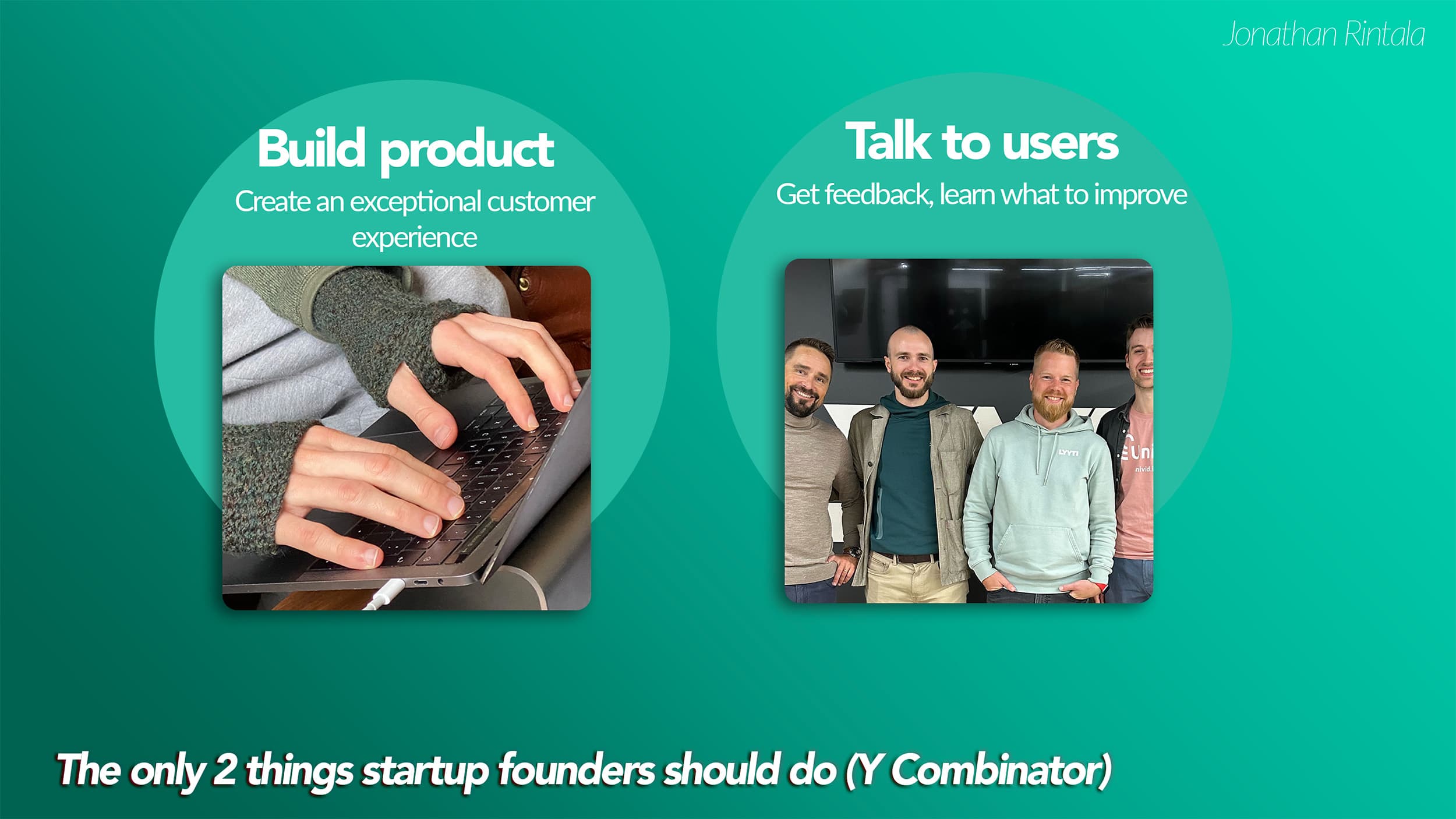
4. Know the tech
Founders should know the tech. At least be able to build their own prototype. Often technical founders are far too less valued. Outside dev teams rarely work.
5. Find PMF, then scale
First make something people want and find product-market fit (PMF). Then scale.
Don't try to scale before having reached PMF.
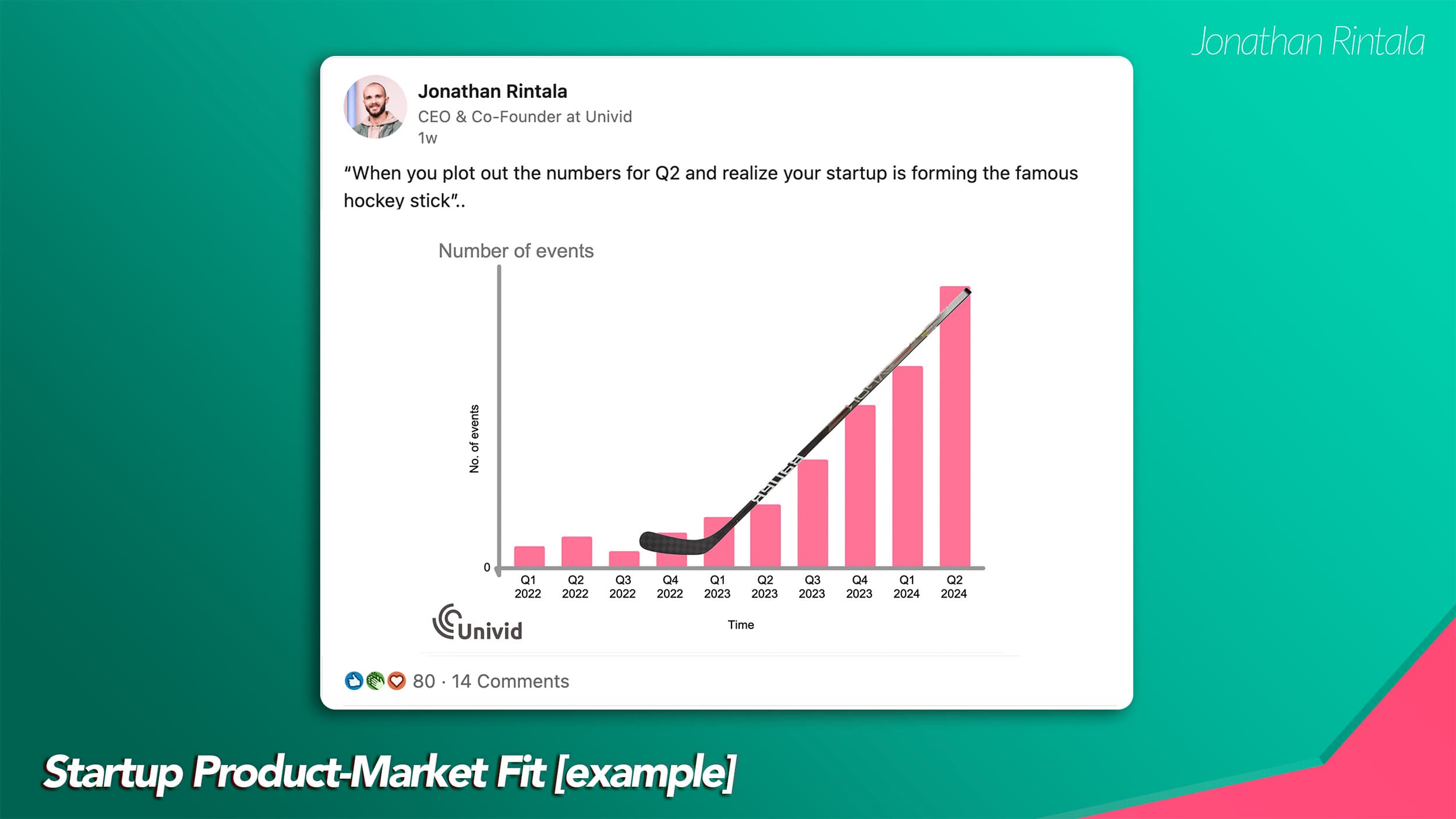
PMF will be evident - learn more on how to know when you have it below.
Product-Market Fit
Only you as founder know if its working or not
Don't raise as much money as you can. Money is not a validation that its working. Be true to yourself if its working or not.
Truth is investors don't know. Truth is press don't know. Journalists actually know the least.
Only you as founder know.
What does PMF look like?
Product-market-fit (PMF) - what does it really look like?
The short answer - you will know when you have it, and if you are asking you most likely don't have it.
For example, when your calendar is fully booked with demos, or you have trouble finding time to onboard customers.
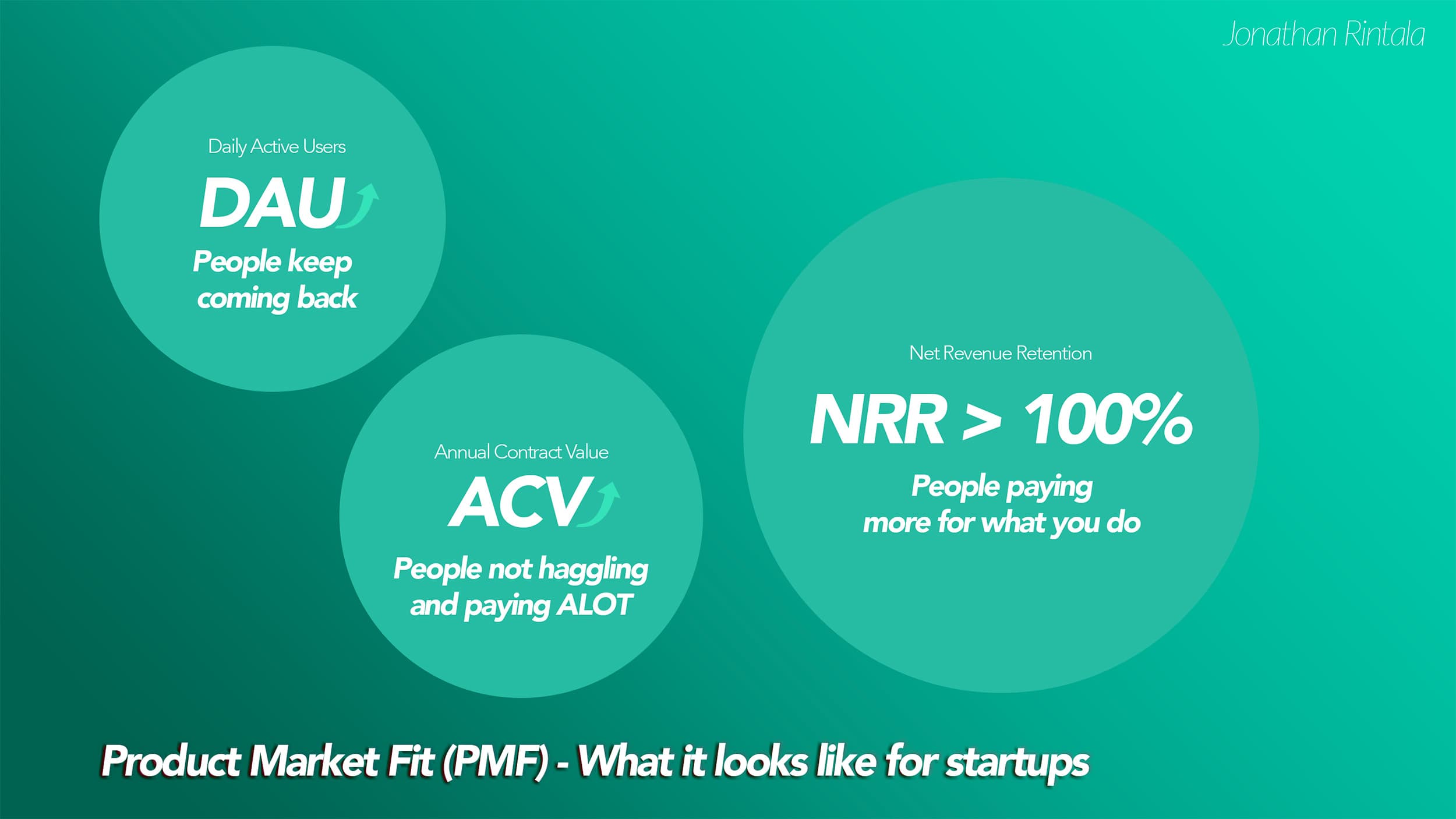
Some more structured ways to identify product-market-fit is:
people coming back - retention
people paying a lot to solve their problems
people expanding accounts and paying more for what you do - look at NRR > 100%
Hype Cycles - The AI Startup Revolution
Hype cycles are essentially technological trends that show a repeatable pattern as they get adopted by the masses.
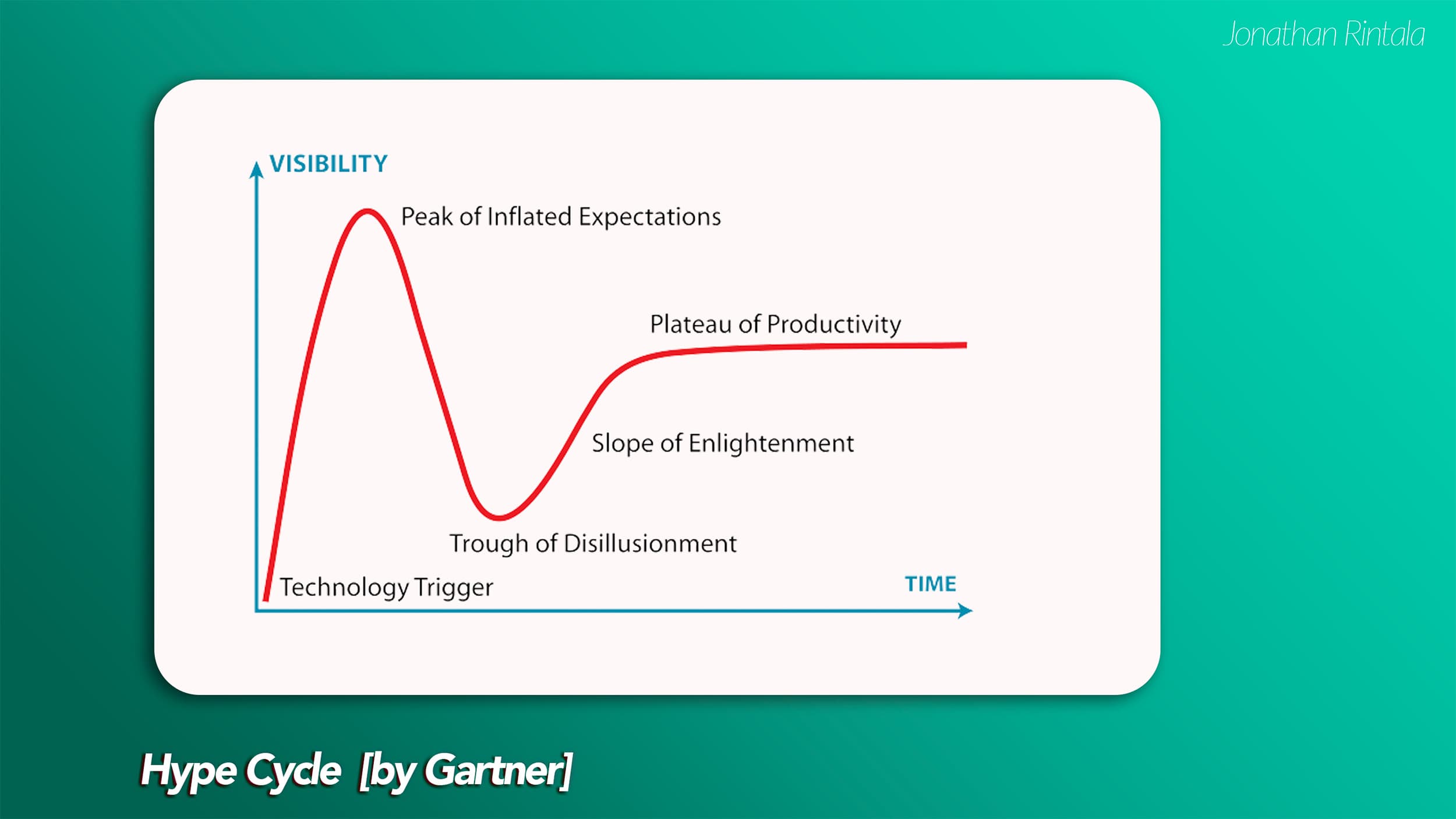
Examples are:
Cloud, mobile phone, web, internet, etc.
And now LLMs
The thing that differentiates LLMs from other trends without as much substance (like VR, or crypto) - is that people are already using LLMs and it's working - solving REAL problems.
There is a huge market in simply "moving data around". That industry being revolutionized by LLMs.
Y Combinator
Why is YC a good thing?
The main big benefit in Y Combinator is that you will be amongst truly ambitious people and don’t build alone.
Being a founder is lonely, there is power in being together.
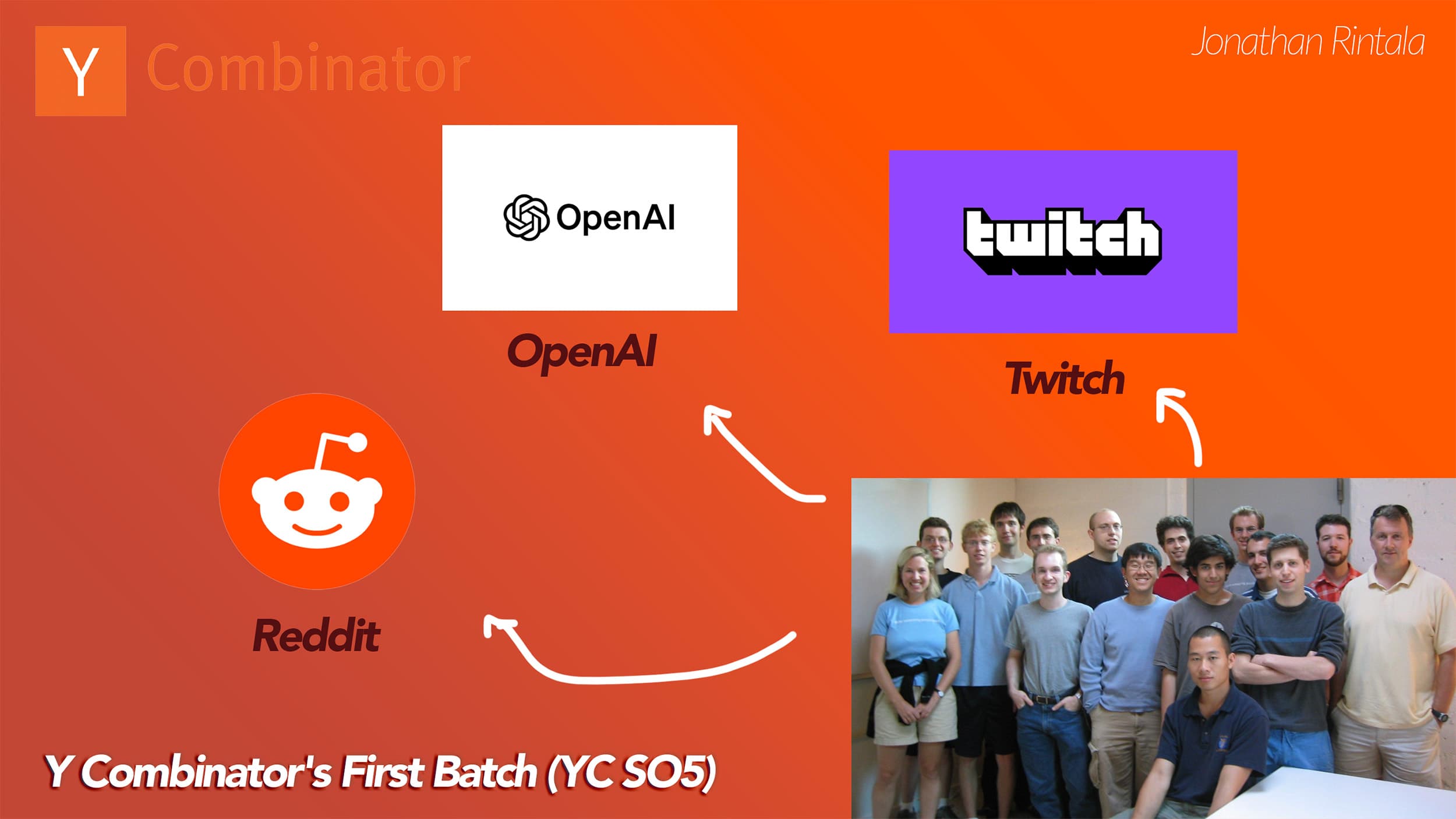
The first batch of YC had a pretty incredible hit rate and featured the founders of:
Reddit (Steve Huffman, Alexis Ohanian)
OpenAI (Sam Altman)
Twitch (Justin Kan, Michael Seibel)
Still, like VC firms - Y Combinator is good at predicting failure, not as good at predicting success.
Is YC the right move?
Either if you are looking to:
(A) Go the VC path
If you are looking to grow a unicorn, and want to go down the VC-route - YC is an excellent move. You get to spend time with and around extremely ambitious people with the same goal - hyper growth. And that fast tracks your learning process a ton. You also get a fast pass into the top tier VC players in the US. YC companies are often able to raise at attractive valuations within days after Demo Day.
(B) Bootstrap
If you are looking to bootstrap, for any reasons - YC might still be a solid move. They take 7% equity in a SAFE, in return for $500,000.
So it's a pretty good deal to get your startup off the ground - instead of raising a small amount from friends and family, even if you don't plan to raise any more money. You get access to a world-class learning ground, ambitious peers, and great network.
However, the idea behind YC is that you should want to build a big company and become a unicorn - so if you have a different goal in mind, it might not be worth the headache. There are alternative accelerators specifically for bootstrapped SaaS as well, like TinySeed, which could be good options.
And you can still access a lot of YC's learning material online - on their Youtube channel, podcast, and Startup School (free online course on how to start a startup). I have had great use of all of this content throughout the years.
Y Combinator startups from Sweden
Y Combinator used to be exclusively a US based accelerator, but has grown to the international scene a while back. Now bringing in startups from other geographies as well.
The Nordics has a hot tech scene with mega hits like Skype, Spotify, Klarna, and others. And, Sweden is now recognized as a natural part of YC as well, usually shipping about 3-4 companies in every batch!
It probably initially helped having Gustaf Alströmer as Group Partner as well. And as YC uptake is heavily based on referrals - Sweden now has a number of YC alumnis to keep the momentum going. Some notable mentions from Sweden to YC:
Leya
Depict
Bemlo
Conclusion
YC can be a great next step or starting point for a startup. Especially if you are looking to grow something really big (like billion dollar big). It's an exciting time to build with LLMs being easy accessible. And still many verticals to explore - that you can access as bootstrapped founder.
The 5 tips Gustaf shared really hits home - on how to build a startup in those fragile early days. Go out and build the next big thing. Preferably surrounding yourself with ambitious people. And don't forget to talk to users.
Want to learn more about growing SaaS companies?

